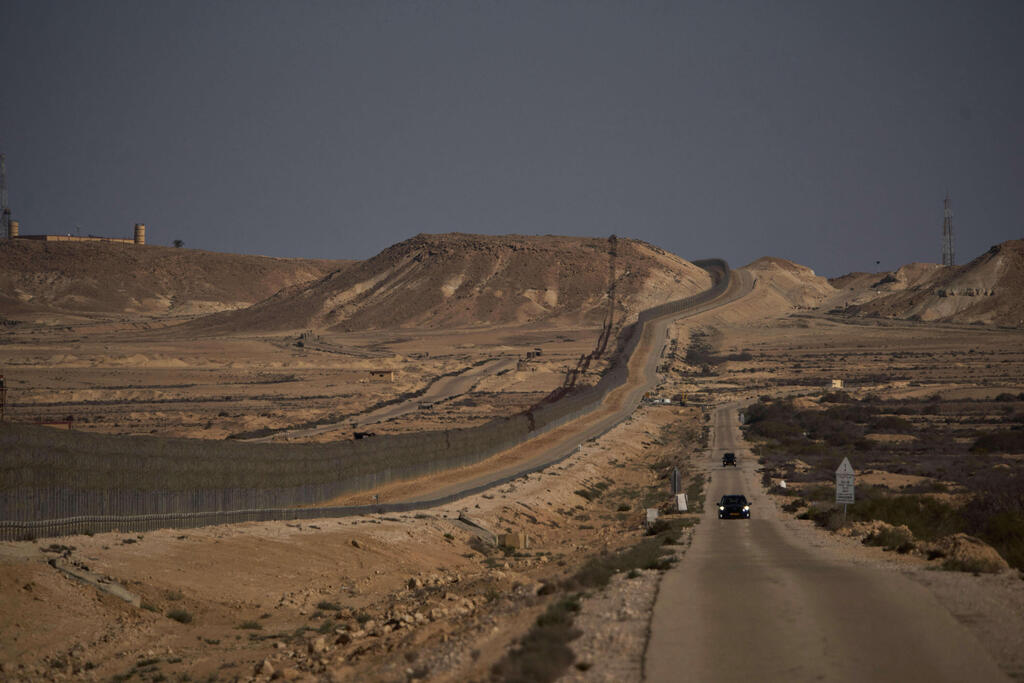by Tira El Cohen
Drones, arms smuggling and Bedouin cartels have turned Israel’s border with Egypt into a gray zone where internal and external security collide
“Where is the government?” cried Eran Doron, head of the Ramat Negev Regional Council. “Residents of the Negev hear gunfire daily from nearby communities.” But the gunfire is only part of the picture. Drones, arms smuggling and Bedouin cartels have turned Israel’s border with Egypt into a twilight zone where domestic and national security intertwine.
At a recent meeting of the Knesset Foreign Affairs and Defense Committee, lawmakers were warned of a new dimension of threat: drones being smuggled across the Egyptian border at what officials described as “assembly-line speed.” Kadesh Barnea’s civilian security coordinator, Annan Sion, reported that during the Rosh Hashanah holiday alone, roughly 550 drones entered his sector — more than 100 per day. If the kite terrorism once plaguing the Gaza border was a nuisance, the drone threat has now become a systemic danger. Yet, as this threat evolves, the government’s response is lagging behind.
During the session, both lawmakers and local residents sharply criticized the national security apparatus, accusing it of shirking responsibility. The Shin Bet, IDF and police were said to be passing the issue between them, while well-equipped Bedouin cartels continue operating freely. Residents described having to chase smugglers using gear they purchased with their own money, and called on the government to supply resources and strengthen communities along the border.
Eyal, a longtime resident of Ezuz, shared a deeply personal example of the blurred line between criminal and security threats. His 10-year-old daughter was raped in 2020 by a man from the Bedouin town of Bir Hadaj. The perpetrator, since convicted and released from prison, is now free — and his brother is the driver of the school bus his daughter takes every day. “This is the reality I have to live with,” Eyal said, his voice heavy with emotion. The failure, it seems, is not just one of security — but of morality and national policy.
Israel’s border with Egypt stretches about 245 kilometers (152 miles). At its northern point near Kerem Shalom, three geopolitical entities converge — Israel, Egypt and the Gaza Strip — forming a zone of high strategic importance marked by smuggling, infiltration attempts, and security coordination between Israel and Egypt. In the south, the border ends at the Israel-Egypt-Jordan tri-border point near Eilat and Taba.
For the small communities living along this frontier, the border isn’t a line on a map — it’s a lifeline. It is their daily reality, a balance between pioneering spirit and looming threat, where a handful of residents safeguard the sovereignty of the entire nation.
At the heart of the border region are just five small communities — Kadesh Barnea, Ezuz, Kmehin, Be’er Milka and Nitzana — home to about 150 families. They grow tomatoes, peppers and herbs using advanced agricultural technology and run guesthouses and tourism ventures in the middle of the desert.
Kadesh Barnea has about 42 families, Ezuz 17, Kmehin 35, Be’er Milka 30 and Nitzana 24. This frontier settlement project is part of David Ben-Gurion’s legacy. In Nitzana in particular, there is potential to showcase the best face of Israel — community resilience, agricultural innovation, eco-tourism and educational development. Strengthening these communities means more than supporting their residents — it means securing Israel’s southern border.
The fight for Negev security is a fight for Israeli sovereignty. Bolstering the Nitzana frontier is not just about local survival — it’s about national strength.
Tira El Cohen
Source: https://www.ynetnews.com/opinions-analysis/article/bkf80skalx

No comments:
Post a Comment